‘I hope Taiwan can have its own Paypal Mafia’: An interview with award-winning startup thingnario’s co-founder Prof. Winston Hsu
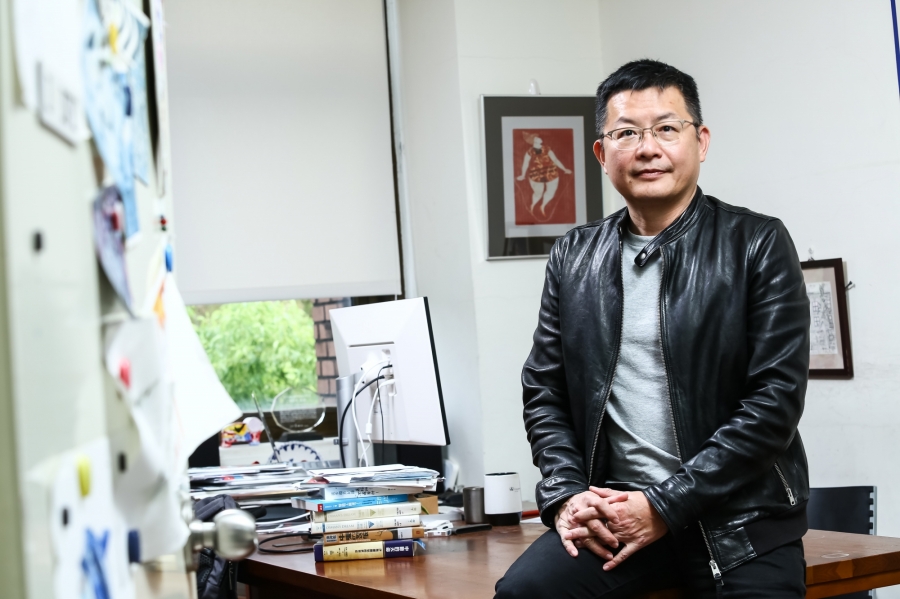
“I hope Taiwan can have its own Paypal Mafia,” says Professor Winston Hsu. “Not only do I want thingnario to be a success, I also hope we can inspire our own thingnario employees to go on and launch their own spin-offs, so that together we can expand Taiwan’s tech ecosystem, and ultimately bolster Taiwan’s global position as a software leader.”
As a world-class academic and researcher in the fields of engineering, machine intelligence and large-scale visual recognition, Professor Winston Hsu wears many hats. On top of his day job as a professor at the Department of Computer Science and Information Engineering at National Taiwan University (NTU), he also works very closely with business leaders in the industry to co-found startups and lead high performance teams to build the next generation of AI applications.
Professor Hsu received his Ph.D. in Electrical Engineering from Columbia University, and was the founder of the NVIDIA AI Lab project, and a founding engineer at CyberLink. Earlier this month, MobileDrive, a subsidiary of FIH Mobile and a member of Hon Hai Technology Group (Foxconn) announced Professor Hsu as its Chief Technology Officer.
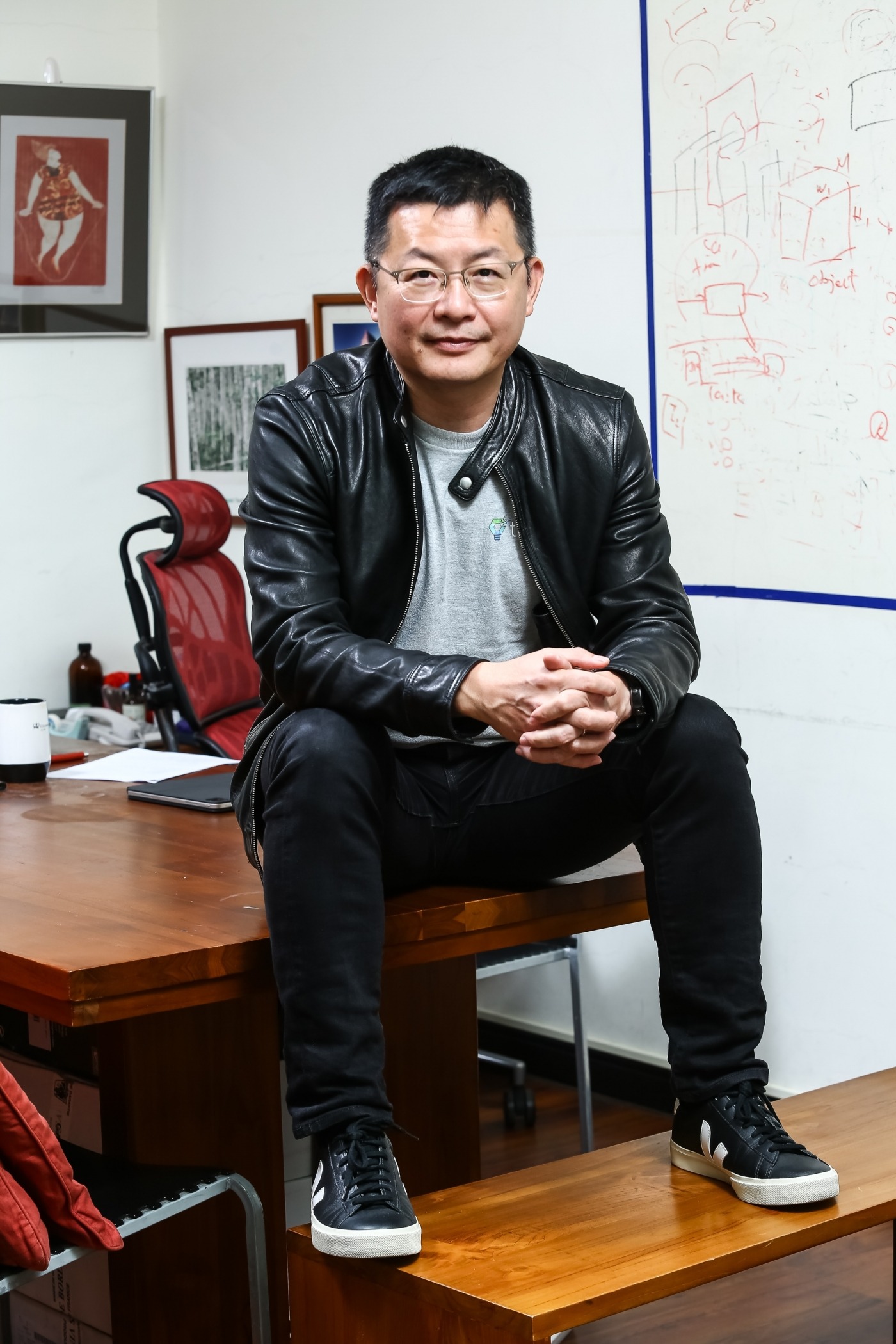
Professor Hsu pictured in his office at NTU. He says he enjoys hosting brainstorming sessions here because so many good ideas have been generated by his students just by getting them together around this table. / Photograph : Meet
We sat down with Professor Hsu to learn more about one of the startups he co-founded — thingnario, an AI-powered SaaS solution that is now the biggest solar monitoring solution in Taiwan in terms of market share.
This fast-growing startup has reported a year-over-year growth of 110% for the past two consecutive years, and its AI solution is also now being leveraged by Taipower’s DREAMS (Distributed Renewable Energy Advanced Management System) to help improve the overall reliability of the electricity system across Taiwan.
An AIoT startup to capitalize on the growth of renewable energy
“It all started when Cardy Huang invited me to go for a run together,” as Professor Hsu recalls about the very beginning of thingario. “Cardy and I are both part of the NTU alumni network, he's in the younger cohort, of course, but that's how we connected. We trained for marathons together and after running for a while that’s when we started to talk about starting something together.”
The duo first formed an idea about combining the power of AI and IoT at the end of 2015 and went on to launch thingnario in 2017. Speaking about why he took the plunge into this business venture, Professor Hsu says it’s because he has known Cardy for a long time and he trusts him. “There’s already a lot of business trust between us and he is a professional in everything he does.”
The name thingnario comes from the combination of ‘Internet of Things’ and ‘scenario’, meaning its AIoT solutions can be used in many different scenarios and applications. Its mission is 'to mitigate the IT technology gap in the physical industry with software innovations'.
When we asked why he chose to focus on the renewable energy sector, he said initially they didn’t know which industry to focus on — it was a process of trial and error. “We tried applying our solutions in many different industries such as healthcare, finance & banking and even plastic manufacturing. But we quickly learned those weren’t suitable areas for us to apply our solutions as it was hard to be scalable in those sectors. So we turned to renewable energy as we predicted that it was soon going to experience rapid growth and there will be a demand for scalable AI solutions to optimize energy efficiency. And we wanted our startup to capitalize on the potential growth and development of this sector.”
Fast forward to 2021, there is now a burgeoning market demand for renewable energy as countries around the world are pushing for an energy transition into a low-carbon future. In the span of 5 years, thingnario now manages over 2,000 solar farms around the world with a total capacity of more than 1GW. It is also growing rapidly in many different international markets such as Thailand, Malaysia, Chile and Mexico. With over 800 clients worldwide, thingnario has an impressive client retention rate of 99.6%.
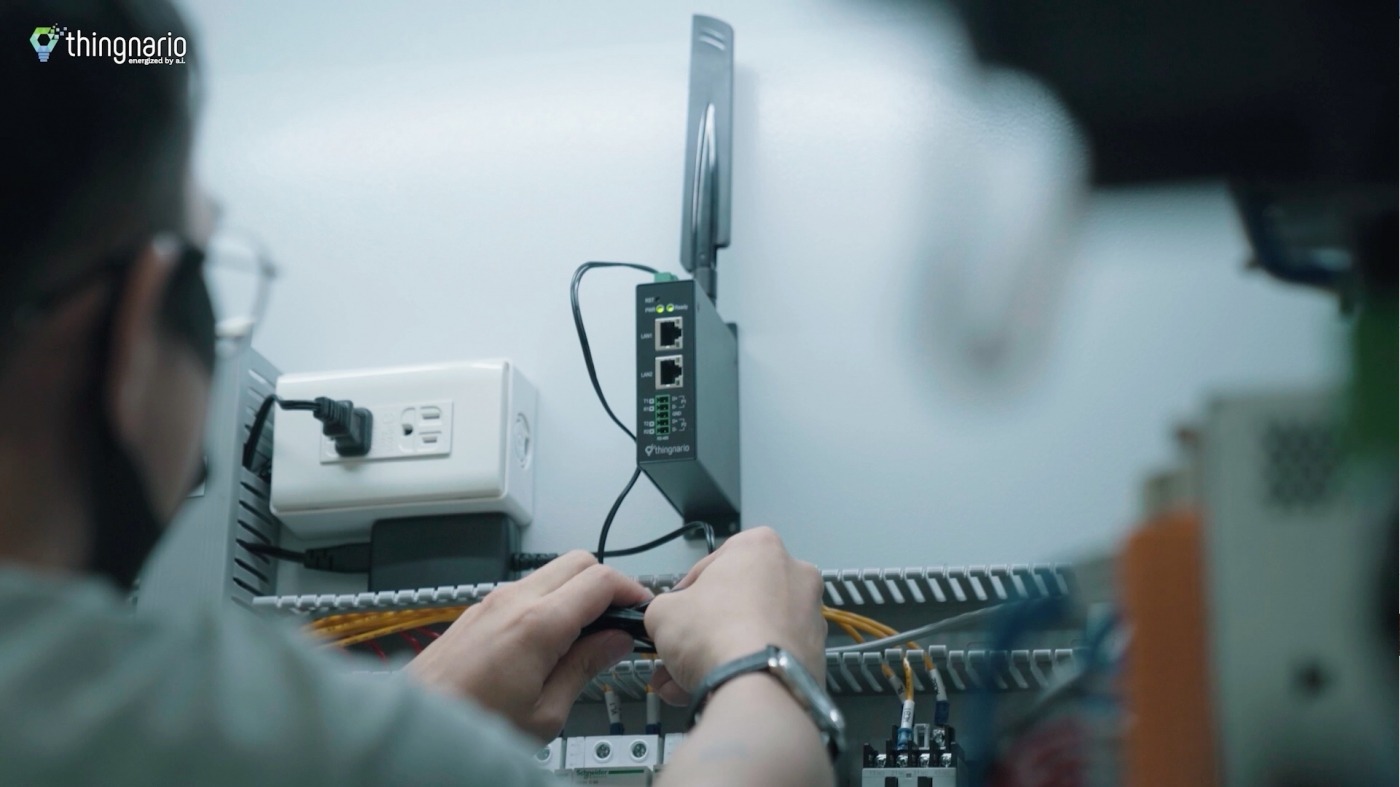
“It’s a flexible plug-and-play system that can be deployed anywhere and withstand extreme temperatures at remote solar farms,” says Professor Hsu. / Photograph: thingnario
Boosting solar energy efficiency with AI-driven data analytics
thingnario combines Taiwan’s expertise in hardware manufacturing to make deployment of its software solutions very easy for customers. “It’s a flexible plug-and-play system that can be deployed anywhere and withstand extreme temperatures at remote solar farms,” says Professor Hsu.
Its scalable solutions use AI/ML and computer vision technology to analyze huge amounts of data to establish and predict solar production models and patterns. This provides businesses with real time insights and actionable data via instant mobile notifications that help enable faster and better decision making.
thingnario’s advanced AI technology also has the capability to differentiate many types of faults in real time. For example, when a tree is blocking a solar panel, the system will understand this issue and alert the client so they can take action immediately to prevent service disruptions. Customers who use thingnario have reported a boost in energy production profit by 12-20%.
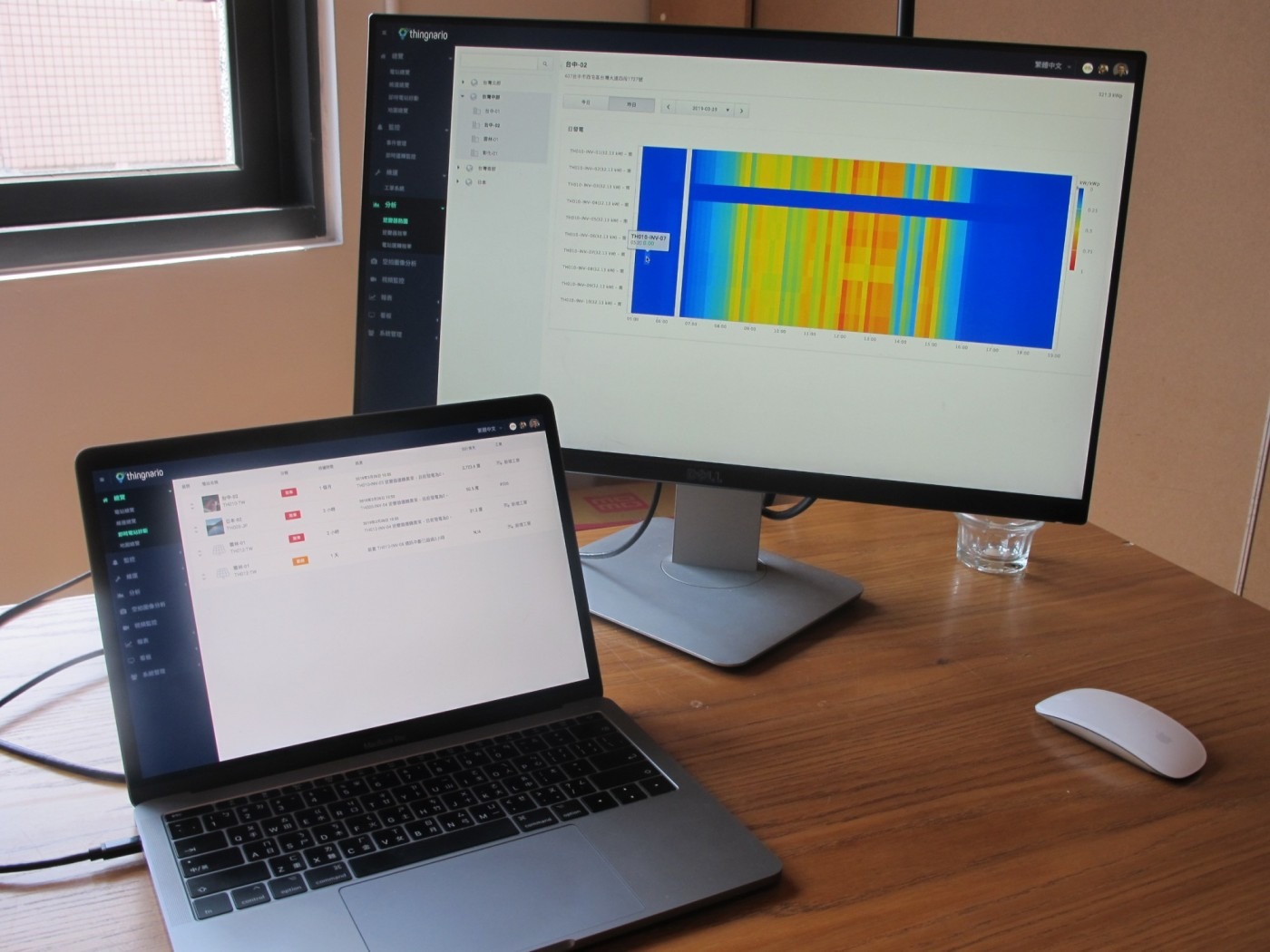
thingnario combines Taiwan’s expertise in hardware manufacturing to make deployment of its software solutions very easy for customers. / Photograph: 陳映璇攝
“Efficiency, reliability and scalability is what we offer for businesses,” says Professor Hsu. “As a company that manages critical energy data and analytics, accountability is very important, so it is a top priority for us to ensure our services are reliable and cyber-secure.”
From 1-10: thingnario is on track to accelerate its international market growth
thingnario was recently named as one of the winners at this year’s prestigious Business Startup Awards, held annually by The Ministry of Economic Affairs Small and Medium Enterprise Administration to recognise and celebrate the best startups in Taiwan.
The award-winning startup is now at a growth stage from 1-10 and they have made new hires such as a new Chief Operating Officer, William Kao, to help accelerate the company’s growth and expansion into new markets. The Southeast Asia market will be a key focus for them in 2022. They are also making strategic plans on entering the Japanese market, in which the government recently announced its plans to raise the renewable energy target to 36-38% by 2030.
Speaking about the future of thingnario, Professor Hsu hopes this is just the beginning of more software startups he will see in Taiwan. “I hope Taiwan can have its own Paypal Mafia. Not only do I want thingnario to be a success, I also hope we can inspire our own thingnario employees to go on and launch their own spin-offs, so that together we can expand Taiwan’s tech ecosystem, and ultimately bolster Taiwan’s global position as a software leader.”
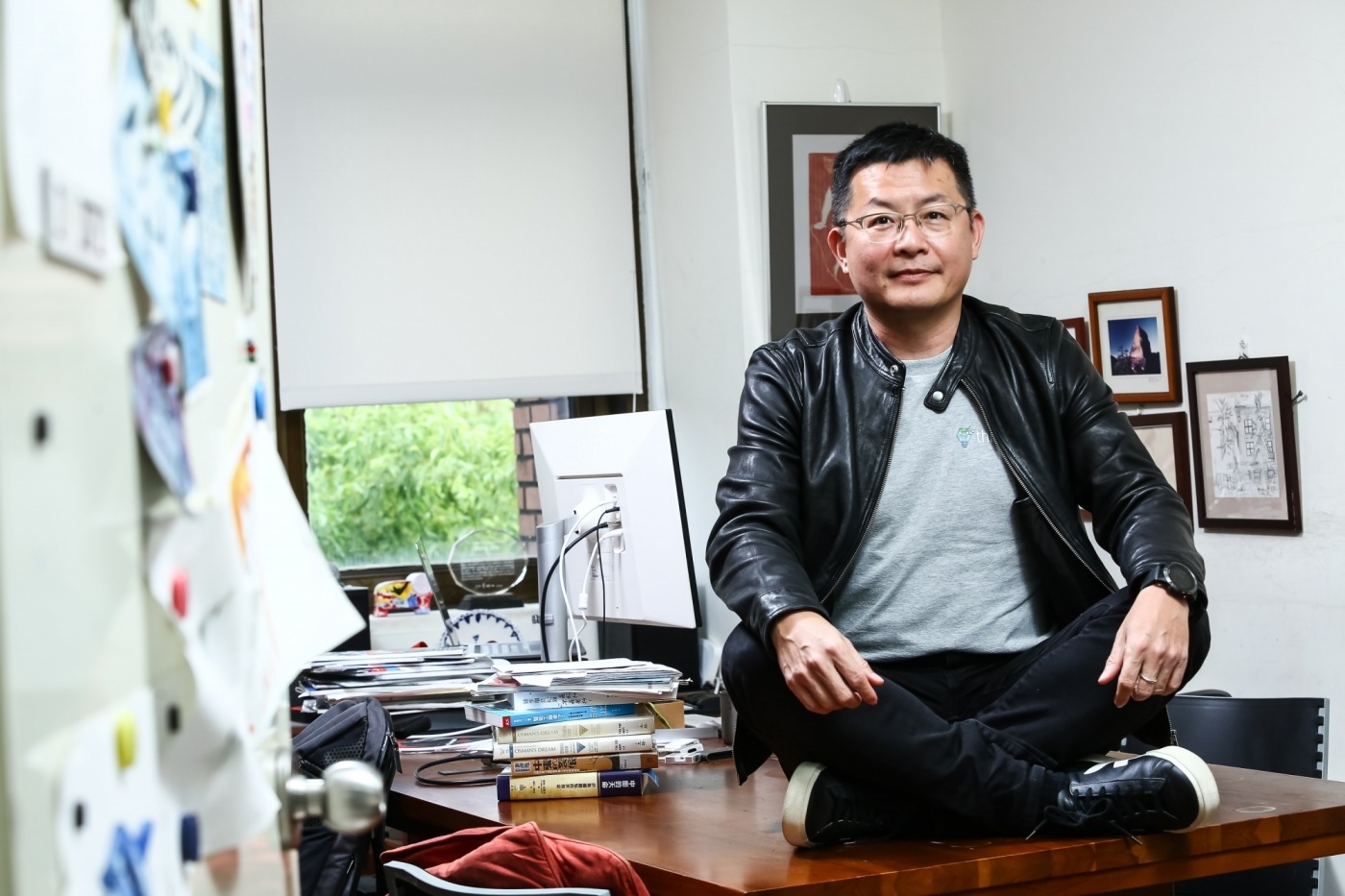
"I hope Taiwan can have its own Paypal Mafia," says Professor Hsu. / Photograph : 蔡仁譯攝
〔Original :Meet Global〕
https://meet-global.bnext.com.tw/articles/view/47565